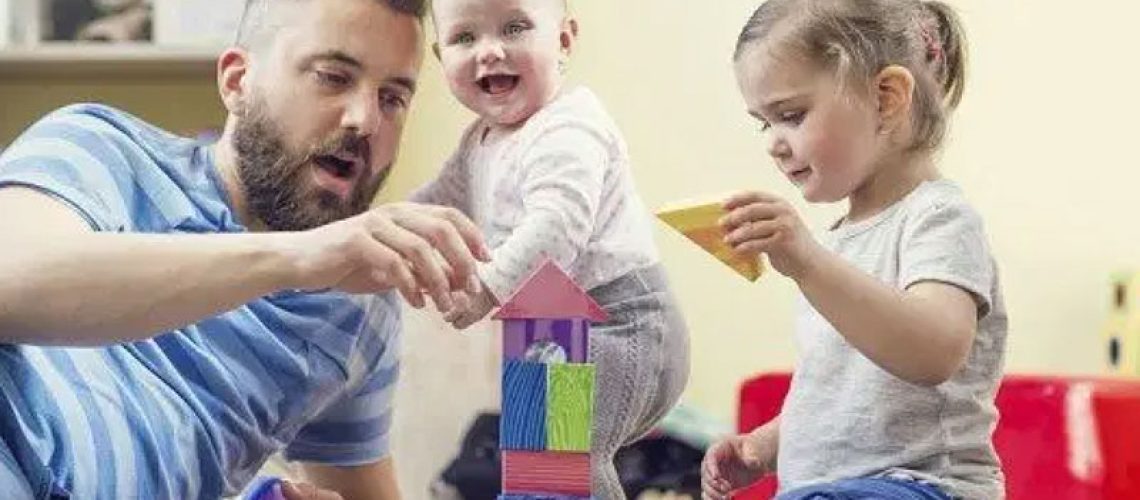“Play is the work of children” – Jean Piaget.
Play is a big part of childhood, essential for learning, development, and social engagement. In occupational therapy, play is not just about having fun—it is a powerful tool to support cognitive, emotional, social, and motor development!!
How Does Occupational Therapy Support Play Skills?
Occupational therapists use play as both a goal and a platform for therapy. We assess and support various play-based skills, including:
- Social interaction during play
- Imaginative and pretend play development
- Fine and gross motor skills within play activities
- Sensory exploration and regulation through play
- Executive functioning skills such as planning, problem-solving, and flexibility in play scenarios
- Types of play a child might use (e.g. defined games such as board games, sports or computer games, free play, structured play)
- Turn taking, sharing and collaboration with peers
By incorporating therapy within play, we help children build essential life skills while keeping sessions engaging and enjoyable.
Play Skills at My Therapy Space (MTS)
Our occupational therapists are continuously expanding their knowledge and skills in play-based interventions. Therapists at My Therapy Space have completed further training including:
- DIR Floortime – A relationship-based approach that focuses on a child’s natural emotions and interests to promote development through interactive play.
- Karen Stagnitti’s Learn to Play Program – A structured approach designed to develop pretend play skills, creativity, and storytelling abilities.
The MTS occupational therapy team is committed to ongoing training, supervision, and professional development to ensure we are using the most effective strategies to support your child’s play development.
What Will Play-Based Therapy Look Like for Your Child?
Every child is unique, and so are their therapy sessions! Depending on your child’s needs and goals, OT sessions may include:
- Child-led play – Following your child’s interests to encourage engagement and motivation.
- Structured and guided play – Introducing play scenarios to develop specific skills such as turn-taking, sharing, collaboration and imaginative thinking.
- Sensory play – Exploring different textures, movements, and activities to support regulation and engagement.
- Social play – Practicing play interactions with therapists, siblings, or peers in group/paired sessions to strengthen social confidence.
- Community visits – Our OTs can head out to your home, kindy or school to support play and social interactions in the natural environment!
What Resources Do We Use?
We believe in interest-based and child-led play. The best way to support a child’s play development is by integrating what they already love! Some of our resources include:
- Activities surrounding their special interest – whether that be Minecraft, Roblox, the Weather, Geography, Space, Princesses or you name it!
- Pretend play items (dolls, toy kitchens, costumes, puppets)
- Sensory play materials (playdough, kinetic sand, water play, textured objects)
- Building and construction toys (LEGO, blocks, puzzles)
- Books and story-based play prompts
- Outdoor play and movement-based activities
By using what excites and motivates your child, we create a safe and encouraging space for growth.
How Will We Support Your Family?
Developing play skills doesn’t stop in therapy sessions! Our therapists work closely with families by:
- Providing strategies to encourage play at home.
- Offering guidance on selecting toys and activities that match your child’s developmental level.
- Sharing practical tips to enhance play interactions with siblings and peers.
- Collaborating with caregivers to integrate meaningful play into daily routines.
With consistent OT support and play-based strategies, you may notice:
- Increased confidence and independence in play
- Improved ability to engage in pretend and imaginative play
- Better social interaction skills, including turn-taking and cooperative play
- Enhanced sensory regulation and attention during play
- Greater creativity, flexibility, and problem-solving skills in play scenarios
We are excited to be part of your child’s play journey and look forward to seeing the incredible growth that comes from engaging, meaningful, and purposeful play!

